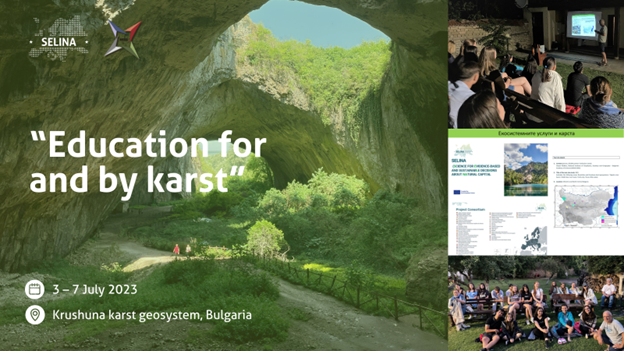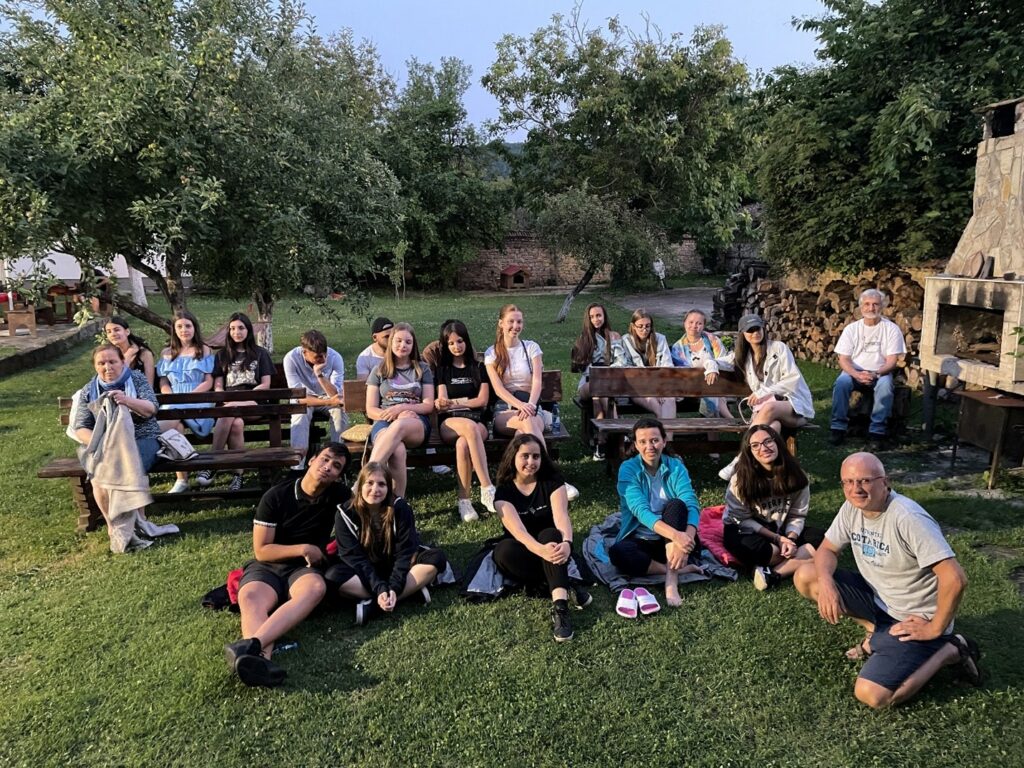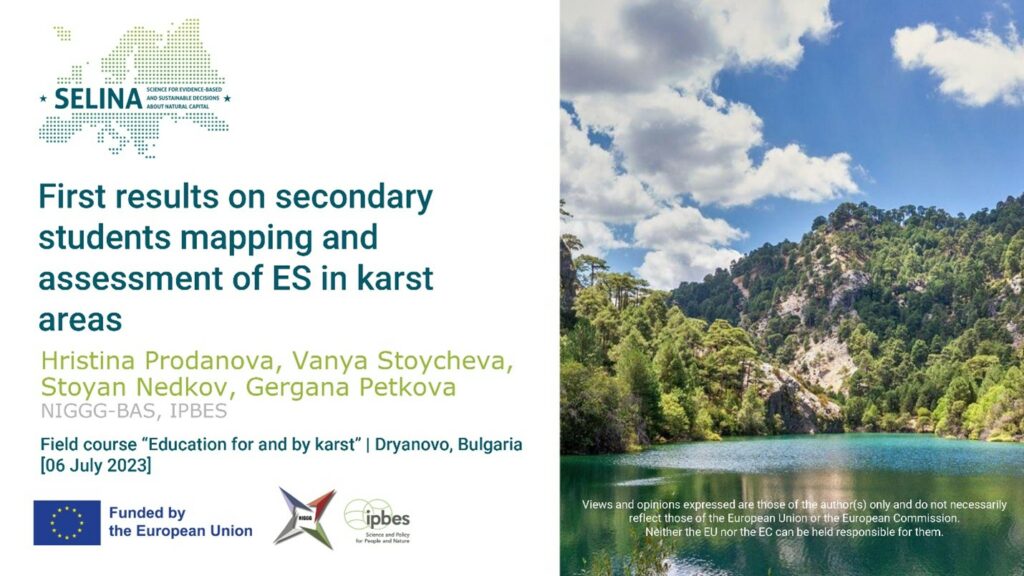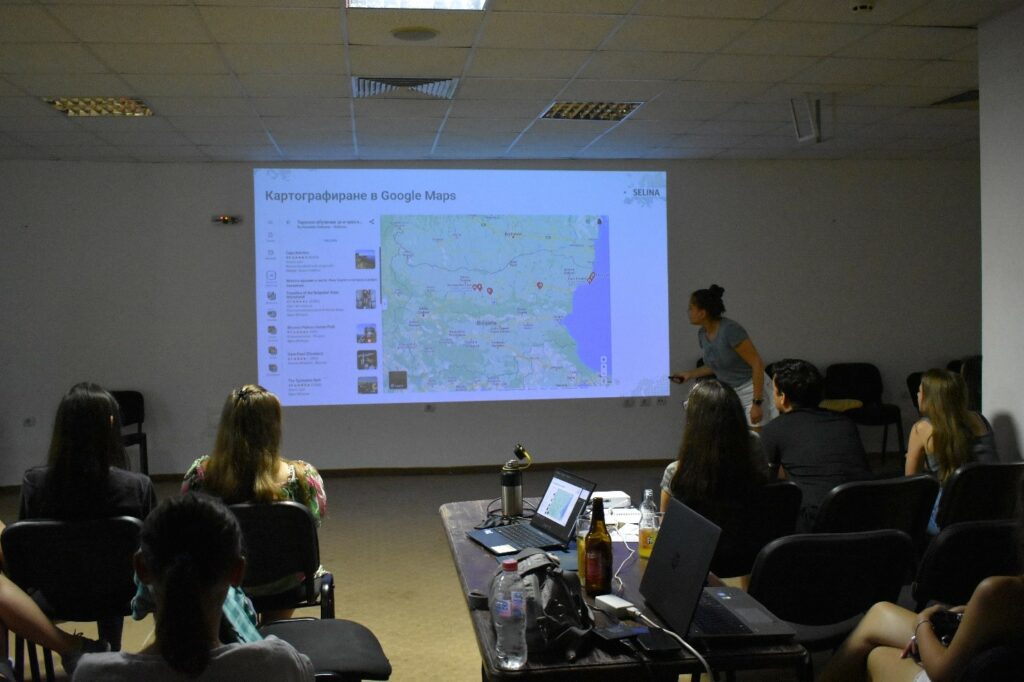From 3 – 7 July 2023 the National Institute of Geophysics, Geodesy and Geography (NIGGG-BAS), an ESP member organisation and one of the Bulgarian partners in the SELINA project, co-organised an innovative field course for secondary school students titled “Education for and by karst”. A total of 17 students from two secondary schools in Sofia, Bulgaria took part in the training.
One of the modules in the course focused on the mapping and assessment of ecosystem services in karst areas, led by SELINA and ESP Bulgaria members Stoyan Nedkov, Hristina Prodanova, Vanya Stoycheva and Gergana Petkova. The idea for the training module emerged from the discussions at the first SELINA thematic workshop in March 2023. There, participants deliberated on the barriers and enabling factors for transformative change and highlighted the need to integrate biodiversity and ecosystem services-related themes in the education process, especially in secondary schools.

To address this gap, the NIGGG-BAS team organised the “Education for and by karst” field course and provide opportunities for students to learn about the specifics of the karst areas and how to identify the services provided by karst ecosystems. Along the five days tour in North Bulgaria that covered an area of 530 km, students visited and mapped caves, waterfalls and other specific objects in several natural parks and NATURA 2000 sites. They acted as researchers while assessing those objects through an expert-based matrix, being also truly excited about their first touch with geospatial technologies and assessments.

The course took part in one of the SELINA test sites, the Krushuna karst geosystem. The region is famous for its abundance of karst formations that prevail not only underground but also on the surface. The purpose of test sites within SELINA is to harness existing work from other projects to further test methods, data and applications into SELINA Strands. Bulgarian test sites come from different projects and represent four types of case study areas in the context of water-related ecosystem services: river basins, urban and karst territories, and glacial lakes.


Bulgarian researchers have a century-long background in karst studies and geomorphology in general but have yet to study karst in the context of ecosystem services. Herewith, earlier this year, members of the SELINA partner NIGGG-BAS expressed their interest in studying ecosystem services in karst areas by publishing original research on the possibilities for integration of existing monitoring data in karst geosystem into ecosystem condition assessments. The paper is published in the Journal of the Bulgarian Geographical Society: https://doi.org/10.3897/jbgs.e101301
“Education for and by karst” is an interdisciplinary school at the National Geoinformation Center, developed jointly by the Experimental Laboratory of Karstology “ProKARSTerra” and the GIS Section at NIGGG-BAS.
—
Source: SELINA project website (https://project-selina.eu/)
